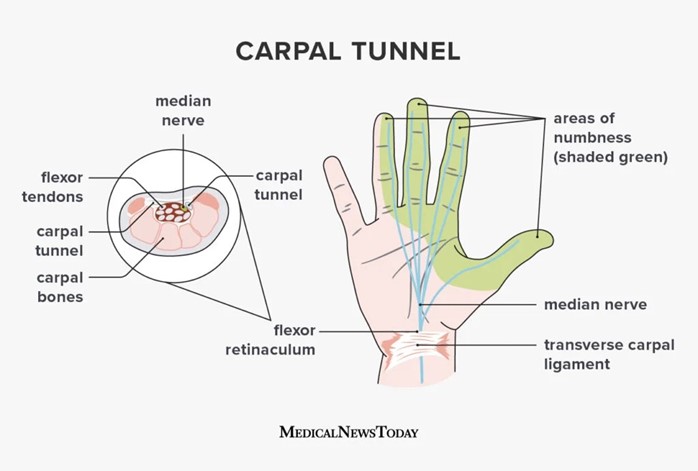A nurse is caring for a client with a myocardial infarction. The client questions the need for cardiac rehabilitation since "my heart is already damaged." Which of the following is the appropriate nursing response?
"Diet and exercise is good for you and good for your heart."
"It's not unusual to feel that way at first, but once you learn the routine, you'll enjoy it."
"Cardiac rehabilitation cannot undo the damage to your heart, but it can help you get back to your previous level of activity safely."
"Your doctor is the expert here, and I'm sure he would only recommend what is best for you."
The Correct Answer is C
Choice A reason: "Diet and exercise is good for you and good for your heart." This statement is true, but it is not the appropriate nursing response. It does not address the client's concerns or provide any specific information about cardiac rehabilitation. It may also sound dismissive or patronizing to the client.
Choice B reason: "It's not unusual to feel that way at first, but once you learn the routine, you'll enjoy it." This statement is empathetic, but it is not the appropriate nursing response. It does not explain the purpose or benefits of cardiac rehabilitation. It may also sound unrealistic or optimistic to the client.
Choice C reason: "Cardiac rehabilitation cannot undo the damage to your heart, but it can help you get back to your previous level of activity safely." This statement is the appropriate nursing response. It acknowledges the client's condition and provides factual information about cardiac rehabilitation. It also emphasizes the positive outcomes of cardiac rehabilitation, such as improving physical function, reducing symptoms, and preventing further complications.
Choice D reason: "Your doctor is the expert here, and I'm sure he would only recommend what is best for you." This statement is respectful, but it is not the appropriate nursing response. It does not answer the client's question or provide any education about cardiac rehabilitation. It may also sound evasive or deferential to the client.
Nursing Test Bank
Naxlex Comprehensive Predictor Exams
Related Questions
Correct Answer is D
Explanation
Choice A reason: Proactive prevention is not a level of prevention, but rather a type of prevention that involves taking action before a problem occurs or worsens. It can be applied to any level of prevention, such as primary, secondary, or tertiary.
Choice B reason: Secondary prevention is a level of prevention that involves detecting and treating diseases or injuries early before they cause significant complications or disabilities. It includes activities such as screening tests, diagnostic tests, or medications.
Choice C reason: Tertiary prevention is a level of prevention that involves reducing the impact and consequences of diseases or injuries that have already occurred and caused damage or impairment. It includes activities such as rehabilitation, surgery, or palliative care.
Choice D reason: Primary prevention is a level of prevention that involves preventing diseases or injuries from occurring in the first place, by eliminating or reducing risk factors or enhancing protective factors. It includes activities such as immunization, education, or lifestyle modification. Advising a client with osteoporosis to have three servings of milk or dairy products daily is an example of primary prevention because it aims to prevent further bone loss and fractures by increasing calcium intake.
Correct Answer is B
Explanation
Choice A: Collaborate with a physical therapist to develop programs for injured employees to return to work. This is incorrect because this is a tertiary prevention strategy, not a secondary prevention strategy. Tertiary prevention aims to restore function and prevent disability or complications after an injury or illness has occurred.
Choice B: Help plant workers identify signs of carpal tunnel syndrome. This is correct because this is a secondary prevention strategy. Secondary prevention aims to detect and treat health problems early before they become more serious or chronic. Carpal tunnel syndrome is a common occupational health problem that can cause pain, numbness, and weakness in the hand and wrist. Early identification and treatment can prevent permanent nerve damage and disability.
Choice C: Organize an influenza immunization campaign. This is incorrect because this is a primary prevention strategy, not a secondary prevention strategy. Primary prevention aims to prevent disease or injury from occurring in the first place, by reducing exposure or risk factors. Influenza immunization can protect plant workers from getting infected by the flu virus and reduce the spread of the disease.
Choice D: Teach plant workers about proper lifting techniques. This is incorrect because this is also a primary prevention strategy, not a secondary prevention strategy. Proper lifting techniques can prevent musculoskeletal injuries such as sprains, strains, and herniated discs, by avoiding excessive stress on the spine and joints.

Whether you are a student looking to ace your exams or a practicing nurse seeking to enhance your expertise , our nursing education contents will empower you with the confidence and competence to make a difference in the lives of patients and become a respected leader in the healthcare field.
Visit Naxlex, invest in your future and unlock endless possibilities with our unparalleled nursing education contents today
Report Wrong Answer on the Current Question
Do you disagree with the answer? If yes, what is your expected answer? Explain.
Kindly be descriptive with the issue you are facing.
